As the market for functional ingredients and adaptogens grows globally, bulk reishi mushroom extract has become a key target for B2B buyers looking to formulate dietary supplements, functional beverages, and wellness products. However, not all extracts are equal—especially when it comes to the core bioactives that define efficacy: triterpenes and beta-glucans.
This guide outlines what B2B buyers should know when sourcing high-volume reishi extract, including optimal specifications, analytical standards, and how to ensure the product lives up to label claims. Special attention is given to formulations like USDA Certified Organic Red Reishi Mushroom Extract Powder, which represent the highest standard in the category.
1. Understanding the Two Key Bioactives: Beta-Glucans and Triterpenes
Beta-Glucans
Complex polysaccharides found in the cell walls of reishi fruiting bodies.
Known for immune-modulating effects—stimulating macrophage and NK cell activity.
Water-soluble and best extracted using hot water extraction.
Triterpenes
Lipophilic compounds like ganoderic acids responsible for anti-inflammatory, anti-fatigue, and liver-protective effects.
Only extractable through alcohol or dual extraction.
Linked to bitter taste and often act as a marker of authenticity in high-grade extracts.
Together, these compounds form the basis of reishi’s adaptogenic power. A well-balanced extract contains both in standardized amounts.
2. What Are the Benchmark Standards?
A. Beta-Glucan Content
Quality reishi extracts should contain ≥20% beta-glucans by weight.
Premium extracts often reach 30–40%, verified via the Megazyme assay or similar methods.
B. Triterpene Content
Many standard extracts contain <1% triterpenes—insufficient for therapeutic claims.
Full-spectrum extracts should aim for ≥3–5% triterpenes, often measured via HPLC or UV spectrometry.
Red flag: If your supplier only states an “extraction ratio” like 10:1 or 20:1 but doesn’t disclose actual bioactive percentages, proceed with caution. Extraction ratio is not a direct proxy for potency.
3. Why Standards Matter in B2B Procurement
When sourcing reishi extract in bulk, batch consistency, scientific credibility, and regulatory safety are paramount:
Clinical formulation: Accurate triterpene and beta-glucan values are needed for dosing precision.
Marketing claims: Regulatory bodies (FDA, EFSA) require ingredient justification for label claims.
Product efficacy: Reproducible bioactive profiles ensure consumer trust and brand reputation.
Bulk ingredients like USDA Certified Organic Red Reishi Mushroom Extract Powder often come with full COA documentation that meets these expectations.
4. Assessing Analytical Methods and Supplier Transparency
To verify bioactive content, ask your supplier:
What method is used to quantify beta-glucans? (e.g., Megazyme vs crude polysaccharide count)
Are triterpenes measured by HPLC, TLC, or UV absorbance?
Are results batch-specific and repeatable?
Are 3rd-party labs involved in verification?
Also, request:
Certificate of Analysis (COA)
Full specification sheet
Residue testing reports (heavy metals, pesticides, mycotoxins)
5. Choosing the Right Format and Grade for Your Application
Depending on your product line, you’ll need to match reishi extract to your use-case:
| Format | Application | Must-Have Spec |
|---|---|---|
| Powder | Capsules, drink mixes | Flowability, beta-glucan content |
| Granules | Teabags, sachets | Solubility, taste masking |
| Liquids | Tinctures, RTDs | Dual extraction, ethanol compliance |
| Blends | Adaptogen complexes | Triterpene visibility, flavor neutrality |
Some suppliers also offer custom blends or microencapsulated formats for stability in RTDs.
6. Certifications That Support Quality Claims
Look for the following certifications in bulk reishi extract:
USDA Organic: No synthetic inputs or GMOs.
GMP Certified: Assures hygienic, controlled manufacturing.
ISO 22000 / HACCP: Food safety and risk management.
Non-GMO, Vegan, Allergen-Free: Relevant for clean-label SKUs.
Kosher/Halal: Necessary for certain regional markets.
High-integrity extracts like USDA Certified Organic Red Reishi Mushroom Extract Powder tick these boxes and offer full-chain traceability.
Conclusion
When sourcing reishi extract in bulk, don't let price alone drive the decision. Focus instead on measurable standards of triterpene and beta-glucan content, validated by transparent analytics and backed by recognized certifications. This not only enhances your brand's credibility—it ensures you deliver the therapeutic promise your consumers expect.
With premium options such as USDA Certified Organic Red Reishi Mushroom Extract Powder, B2B buyers gain both the functional efficacy and market-ready compliance needed to scale winning products.
Read More:
Full-Traceability with Integrated Base and Extraction Workshop: What It Really Means
Hangzhou Molai Biotech Co., Ltd has supply capacity 1200+ tons per year for mushroom powders and extracts, including the mushroom mycelium from modern technology of Deeply Liquid Fermentation and fruiting bodies from the grown real mushrooms to meet the different markets.
Hangzhou Molai Biotech Co., Ltd supplies the products both in Powders and Extracts for commercial using worldwidely, such as Cordyceps Sinensis, Cordyceps Militaris, Maitake Mushroom, Lion’s Mane Mushroom, Turkey Tail Mushroom, Reishi Mushroom, Chaga Mushroom etc.
We offer OEM and ODM services, could extract the products according to your special requirements, process the powders/extracts into Capsules, Tablets, Small Bags, Mushroom Bars, Mushroom Coffee etc.
Organic Lion's Mane Mushroom Extract
Organic Reishi Mushroom Extract
Organic Cordyceps Militaris Extract
Organic Turkey Tail Mushroom Extract
Organic Chaga Mushroom Extract
Organic Shiitake Mushroom Extract
Organic Maitake Mushroom Extract
Organic Tremella Mushroom Extract

_uMLItV.jpg)




